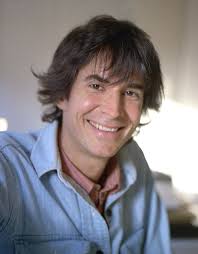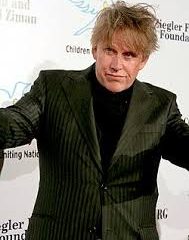The Legacy of Anthony Perkins: A Hollywood Icon

Introduction
Anthony Perkins, an iconic figure in Hollywood history, is remembered primarily for his chilling portrayal of Norman Bates in Alfred Hitchcock’s classic horror film ‘Psycho.’ His significant contributions to cinema extend beyond this renowned role, reflecting a complex persona both on and off the screen. As the film industry evolves, revisiting Perkins’ legacy becomes crucial, particularly in the context of how actors are remembered and celebrated in contemporary culture.
Early Life and Career
Born on April 4, 1932, in New York City, Anthony Perkins was the son of a stage actor. He attended both the Collegiate School and Columbia University, which helped nurture his passion for acting. His career began in the early 1950s, where he quickly made a name for himself with a blend of sensitive and intense performances. Perkins garnered critical acclaim for his roles in films like ‘Friendly Persuasion’ (1956) and ‘The Matchmaker’ (1958), paving the way for his iconic part in ‘Psycho’ in 1960.
Psycho and Its Impact
‘Psycho’ not only solidified Perkins as a leading man but also redefined the horror genre. His performance as the troubled Norman Bates earned him widespread recognition and ultimately typecast him in roles that explored psychological complexity. The film’s success spawned several sequels, with Perkins reprising his role in ‘Psycho II’ (1983) and ‘Psycho III’ (1986), which he also directed. Critics have noted that Perkins infused Bates with a depth that made him both compelling and horrifying, a portrayal that has influenced many actors who have followed.
Later Years and Personal Life
In addition to his film work, Perkins was also an accomplished stage actor and director. Throughout the 1970s and 1980s, he appeared in various television productions and continued to explore diverse roles in both theatre and cinema. His personal life was marked by struggles; Perkins introduced and became an outspoken figure for LGBTQ+ representation in Hollywood after publicly coming out as gay. His openness about his sexuality at a time when it was largely stigmatized contributed to his legacy as a cultural figure.
Conclusion
Anthony Perkins passed away on September 12, 1992, but his influence on both the horror genre and the portrayal of complex characters in cinema remains undeniable. As film enthusiasts look back on his career, Perkins stands out not just as an actor, but as an emblem of artistry and authenticity in a rapidly changing industry. His life story encourages today’s actors and filmmakers to appreciate the depth, nuance, and humanity behind their characters, reminding us that there are always more layers to explore in storytelling.









